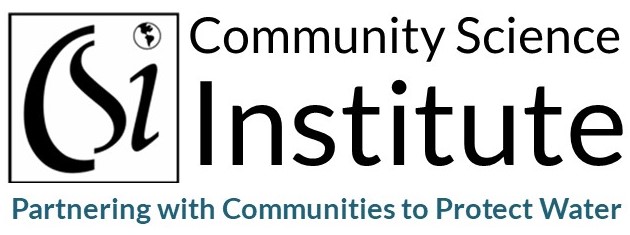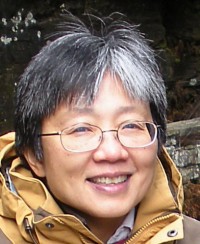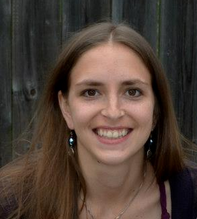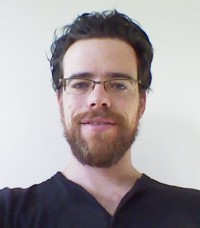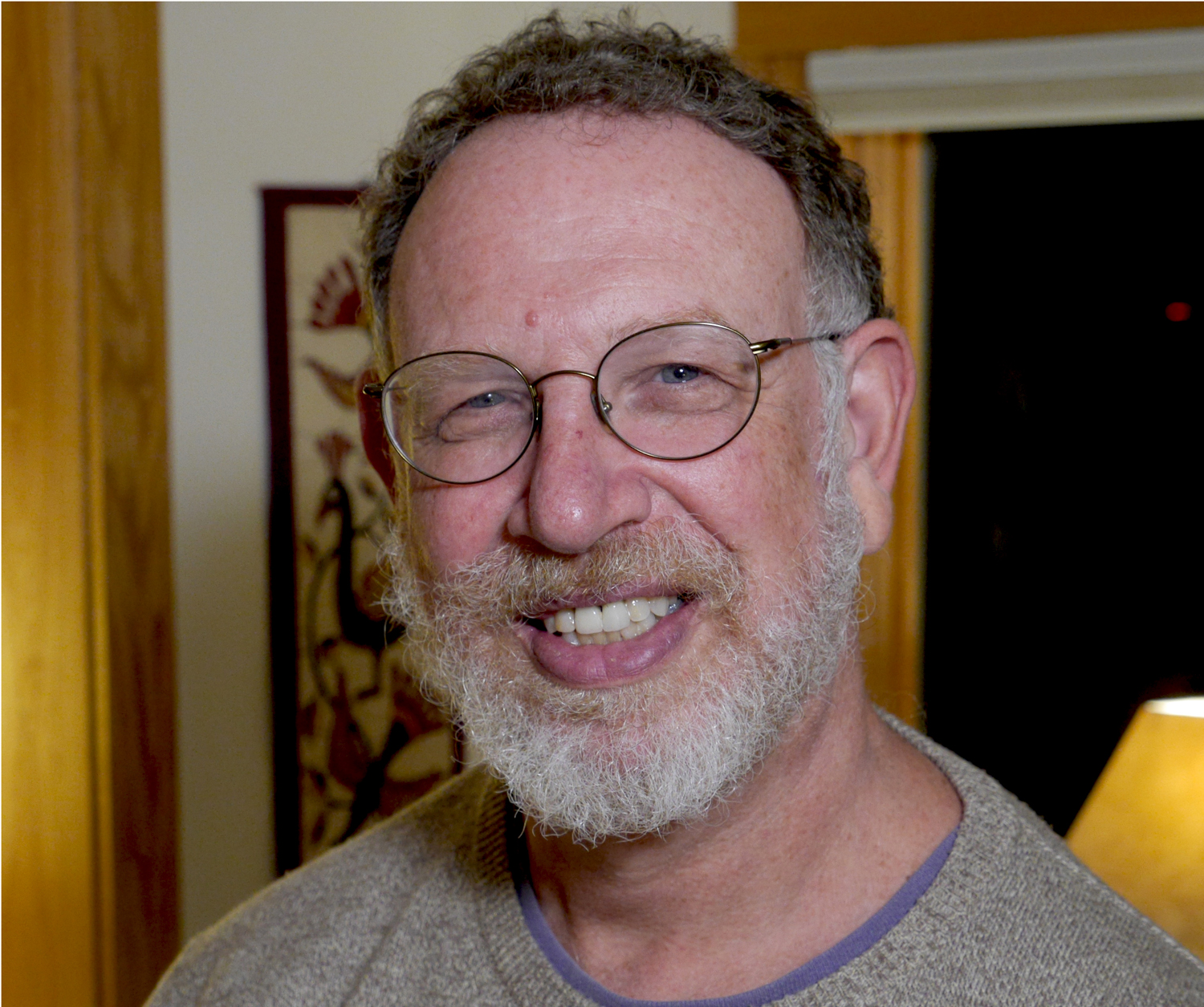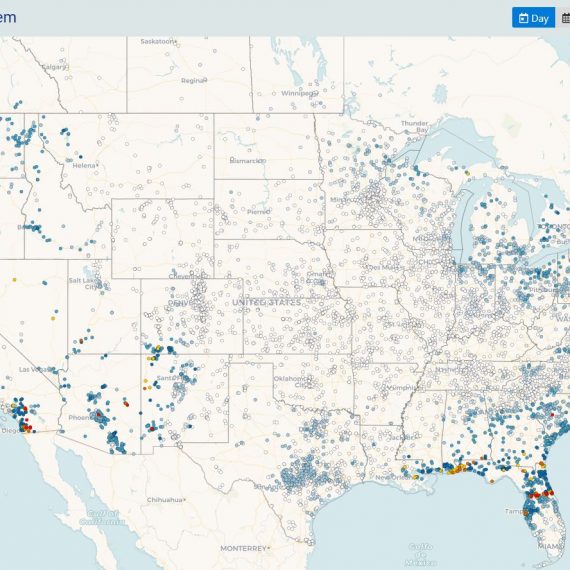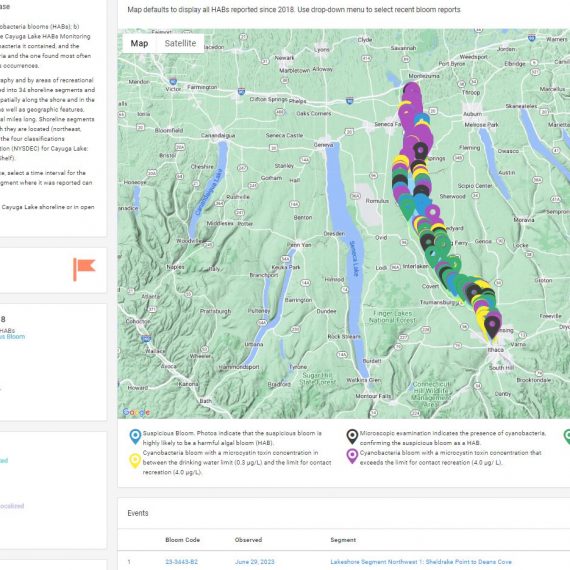Staff & Board
Staff
[one-forth]
[image]http://157.230.227.65/wp-content/uploads/2010/01/Steve-Penningroth-1-March-2011.jpg[/image]
[/one-forth]
[three-forth-last]
[white_box]Steve Penningroth, Ph.D. [highlight_blue]Technical Director, Executive Director, Treasurer[/highlight_blue][/white_box]
Steve Penningroth founded the not-for-profit Community Science Institute with a group of friends in 2000, following up with 501(c)3 tax-exempt status from the IRS in 2002 and certification for CSI’s water quality testing lab in 2003. Long before there was CSI, Steve enjoyed an extended education, going from a B.A. in German Literature to a B.S. in Biology and finally a Ph.D. in Biochemical Sciences in 1977, squeezing in a stint in Army Military Intelligence on the German-Czech border from 1968-1969 where he watched history unfold as Warsaw Pact forces invaded Czechoslovakia and crushed the Prague Spring.
He was an assistant and associate professor at the University of Medicine and Dentistry of New Jersey from 1978-1993, conducting basic research on the role of the dynein ATPase in flagellar motility in sea urchin spermatozoa and teaching pharmacology to medical students. A 1987-8 sabbatical at Cornell University with Professor James Gillett awakened an interest in environmental toxicology and extension work, and in 1993 Steve resigned his faculty position in New Jersey and moved to Ithaca.
As a Senior Lecturer at Cornell for seven years before starting CSI, he developed and taught several undergraduate toxicology courses, served as a technical advisor for community groups at Superfund sites in New York and New Jersey, and conceived the idea of an introductory textbook for non-toxicologists, which was published in 2010 under the title “Essentials of Toxic Chemical Risk: Science and Society.”
The father of two grown children and grandfather of two small boys, Steve shares a home a mile from Cayuga Lake with his wife, Judy, and their three gorgeous German shepherd dogs, all trained by Judy and veteran competitors in agility and obedience. He is grateful for the support, public and private, that has allowed CSI to contribute to the growing movement for greater local stewardship of natural resources.
[/three-forth-last]
[one-forth]
[/one-forth]
[three-forth-last]
[white_box]Michi Schulenberg, B.S. [highlight_blue]Microbiological Analyst[/highlight_blue][/white_box]
Michi has been a lab technician at CSI since August 2008. She does the microbiology and solids assays and BMI (benthic macroinvertebrate) surveys. Her work with BMI has involved training volunteer groups in the method. She has also worked with the 4H2O group monitoring Stewart Park stream and lake sites. Before moving to Ithaca, she lived in Chicago and worked at the Field Museum of Natural History as a specimen preparator in the Division of Mammals.
Many years before, due to a tragic lack of foresight, she got a degree in Chemical Engineering. This was followed by a stint as a stay-at-home mom. She is married, has two grown children, one crazy dog, one lumpish cat and fish. She volunteers for Habitat for Humanity, the Cornell Vertebrate Museum and the Democratic Party. She enjoys preparing bird study skins, home improvement projects, playing the guitar and singing, ballroom dancing, and playing soccer.
She was born in Vietnam, lived in India and France before moving to the suburbs of Washington D.C. at the age of 8.
[/three-forth-last]
[one-forth]
[/one-forth]
[three-forth-last]
[white_box]Becky Sims, B.A. [highlight_blue]Director of Outreach[/highlight_blue][/white_box]
Becky Sims was the Outreach Coordinator at CSI from July 2011 until November 2013 when she became the Director of Outreach. Becky coordinates the baseline testing program for landowners wishing to test their well water prior to any natural gas drilling. She also organizes the “red flag” volunteer groups that monitor streams for gas drilling impacts.
Originally from central Pennsylvania, Becky moved to Ithaca in 2006 to attend Ithaca College. Graduating in 2009 with a B.A. in Environmental Studies, she now calls Tompkins County home. Before coming to CSI, she worked in Member Services for Ithaca Carshare helping over 1000 people figure out how to share 16 vehicles. She serves on the Board of Directors at the Finger Lakes Permaculture Institute, which provides education to connect people to the environment and design resilient communities. She is also a volunteer at the Tompkins County Workers’ Center, fighting for living wages and safe workplaces for all workers.
[/three-forth-last]
[one-forth]
[/one-forth]
[three-forth-last]
[white_box]Patty Chuang, M. Eng [highlight_blue]Chemical Analyst[/highlight_blue][/white_box]
Patty is the chemical analyst at Community Science Institute. She is able to conduct over 20 assays at the lab. She also organizes the logistics of scheduling assays such that deadlines are consistently met in an efficient manner.
Patty has a history of interest in water quality. Originally from North Carolina, she attended The University of North Carolina at Chapel Hill, where she attained her B.S. in both Mathematics and Environmental Science and Engineering. She followed her interests in water and sanitation and went to the Massachusetts Institute of Technology to get her Masters degree in Environmental and Water Quality Engineering. Her thesis was published in the Journal of Water, Sanitation and Hygiene for Development.
She enjoys activities in the great outdoors, particularly hiking, camping, rock climbing, and her absolute favorite – running. She dreams of one day completing an ultramarathon. Traveling around the world is one of her greatest joys. She also enjoys reading, learning foreign languages, strategy games, stand-up comedy, and trying new vegetarian recipes in the kitchen (she has been a vegetarian for 9 years).
[/three-forth-last]
[one-forth]
[image]http://157.230.227.65/wp-content/uploads/2010/01/100_Adrianna.jpg[/image]
[/one-forth]
[three-forth-last]
[white_box]Adrianna Hirtler, M.S. [highlight_blue]BMI Specialist[/highlight_blue][/white_box]
Adrianna Hirtler has been doing BMI work with the Community Science Institute since the summer of 2011. She has been a water-loving naturalist for about 15 years, primarily in the Finger Lakes Region and Yosemite National Park but also in the Cascade Range of Oregon, the Grand Canyon and Rocky Mountain National Park. She received a B.S. degree in Natural Resources from Cornell University in 1999 and an M.S. in Environmental Studies from the University of Oregon in 2004. She is also a volunteer water monitor with the Cayuga Inlet group.
[/three-forth-last]
[one-forth]
[/one-forth]
[three-forth-last]
[white_box]Matthew Yarrow, Ph.D. [highlight_blue]GIS Specialist[/highlight_blue][/white_box]
Matt Yarrow began making maps while in a Ph.D. program at the University of Chile in Santiago in 2005. He continued learning about geography and cartography in a year-long professional certificate program in GIS (Geographic Information Systems) at the University of Washington. The world of GIS attracted him, because there are different levels on which one can interact with the technology. First, designing colorful and readily interpretable custom maps can be seen as an artistic endeavor. Second, GIS can be used as a scientific tool to analyze processes that occur across landscapes.
At CSI, Matt is able work on both levels – something that makes him happy. He has helped create maps for the CSI website and is working to analyze CSI’s large chemical water quality dataset with an eye toward spatial patterns. Matt finally finished his Ph.D. in 2010 with a dissertation on the spatial aspects of nutrient cycles in terrestrial landscapes. He thinks that understanding how water, nutrients and contaminants move in the landscape and the interactions between these processes and human activities is key in managing our water resources sustainably. Matt grew up in Ithaca and returned in 2010 with a wife and daughter. His long-term goal is to contribute to sustainable natural resource management and sustainable communities in the region.
[/three-forth-last]
[one-forth]
[image width=”220″ height=”220″]http://157.230.227.65/wp-content/uploads/2012/06/abnerstrokectr.jpg[/image]
[/one-forth]
[three-forth-last]
[white_box]Abner X. Figueroa [highlight_blue]Senior Web Developer[/highlight_blue][/white_box]
Abner contributes extensive experience with relational database technologies to the development and design of the Community Science Institute website and its database web application. Abner relies primarily on the Ruby on Rails platform and his experience with server-side programming languages to create back-ends to support rich internet experiences.
Abner is a skilled web applications engineer with a love of clean code and strong fundamentals in object-oriented programming. His passion is to make beautiful products and to bring critical thinking to real challenges. His love of technology comes from his considerable experience as a polyglot programmer; his palette is forever expanding with newer, cleaner, and more efficient coding techniques. Abner also possess a knack for describing complex concepts in a way that non-technical audiences can easily grasp.
[/three-forth-last]
The Community Science Institute is proud to be a Living Wage Employer.
Board of Directors
[/one-forth]
[three-forth-last]
[white_box]David Weinstein [highlight_blue]Board President[/highlight_blue][/white_box]
David Weinstein is a forest ecologist with the Department of Natural Resources at Cornell and the President of the CSI Board of Directors. He received his B.A. in Environmental Science at Dartmouth College, his M.S. in Botany at the University of New Hampshire, and his Ph.D. in Ecology at the University of Tennessee and Oak Ridge National Laboratory, researching long-term growth and biogeochemical cycling of old growth forests in the Great Smoky Mountains. David has worked in various programs at Cornell University since 1981, including as a member of the Ecosystem Research Center housed in the Department of Ecology and Evolutionary Biology, of the faculty of the Boyce Thompson Institute, and most recently of the Department of Natural Resources. He specializes in computer modeling of the effects of pollutants and climate change on the growth, functioning, and distribution of forests throughout North America and the world.
David has had a long-standing interest in working to keep the lands and waters of the Finger Lakes healthy and natural. An affiliate of the Tompkins County Environmental Management Committee for nearly 30 years, a member of the Land Committee of the Finger Lakes Land Trust for 20 years, a member of the Dryden Planning Board for 15 years, and most recently, a volunteer and member of the board of the Community Science Institute for over 10 years, he has been able to help shape local environmental policy and provide resources to influence that policy in many different issues of local concern.
He lives with his wife, Christina, and family in the lovely hamlet of Varna, with Fall Creek running right through his backyard. As long-time swimmers, waders, and sometime aquatic naturalists in the Creek, David and family are dedicated to making sure the Creek and the rest of the waters of the Cayuga Lake basin remain a wonderful and healthy resource for future generations to come.
[/three-forth-last]
[one-forth]
[/one-forth]
[three-forth-last]
[white_box]Angel Hinickle [highlight_blue]Vice President[/highlight_blue][/white_box]
[one-forth]
[/one-forth]
[three-forth-last]
[white_box]Eric Evans [highlight_blue]Board Secretary[/highlight_blue][/white_box]
Eric Evans has a master’s degree in mathematics from the University of West Florida and has worked for many years in the computer technology industry as a programmer, analyst, systems engineer, and system administrator. Companies and organizations for whom he has worked or provided consulting services include Computer Sciences Corp., Computer Data Systems Inc., Technology Management Corp., Naval Air Rework Facility, Naval Training Systems Center, Navy Experimental Diving Unit, Navy Comptroller Standard Systems Activity, Ithaca College, and Cornell University. He has also taught mathematics at Pensacola Junior College, Florida State University, and Cazenovia College.
[/three-forth-last]
[one-forth]
[/one-forth]
[three-forth-last]
[white_box]Robert Barton [/white_box]
Robert Barton holds a BSEE and MEng from Cornell Electrical Engineering School and a PhD from the University of Rhode Island, focusing on acoustical signal processing. He has worked at the Raytheon Submarine Signals Division and helped foster the public use if the Fast Fourier Transform in detecting submarines during the early 70’s. He worked for the Naval Underwater Sound Lab in New London, CT for over 30 years, retiring in 2004.
Currently, Robert and his wife of 42 years, Shirley, own Arlen Acres Farm, a certified organic farm for vegetables and grain. He is a Master Forest Owner/Volunteer, a program that offers free forestry resources for private forest owners. He is the Chair of the Southern Finger Lakes Chapter of New York Forest Owners Association, an organization dedicated to helping forest owners manage, improve and enjoy their woods. He is also the Secretary of the New York Nut Growers Association. He has trained at the Democracy School, using that experience to educate the Town of Hector on the dangers of sewage sludge as an agricultural amendment. Robert has been a CSI volunteer with the StreamWatch group since 2008, sampling Taughannock and Frontenac Creeks.
Robert is interested in protecting small communities and farms from large industrial corporations and is concerned about the effects of corporate personhood. He wishes to leave a clean environment for our descendants. He is interested in finding ways to connect elderly populations to the world and each other through advances in technology. Other interests include exploring the woods, protecting water quality, organic farming and cooking.
[/one-forth]
[three-forth-last]
[white_box]Gerald VanOrden[/white_box]
